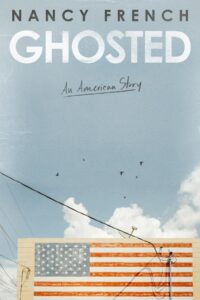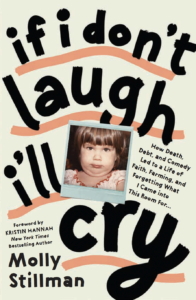Memwhatnow?
If you’re new to memoir, try these readable, conversation-jolting titles loved by the Common Good team:
Into real-life mysteries?
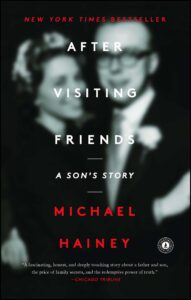 After Visiting Friends
After Visiting Friends
by Michael Hainey
Diving into spirituality?
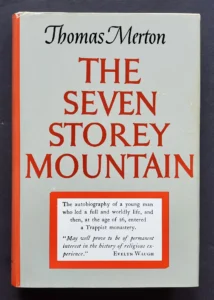 The Seven Storey Mountain
The Seven Storey Mountain
by Thomas Merton
How about writing?
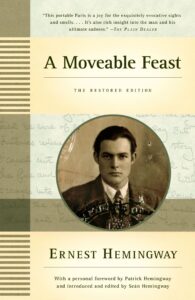 A Moveable Feast
A Moveable Feast
by Ernest Hemingway
Exploring mid-century America (while laughing)?
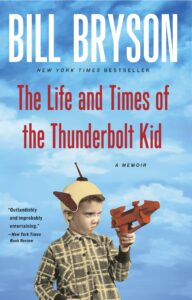
The Life and Times of the Thunderbolt Kid
by Bill Bryson
Curious about dying (and crying your eyes out)?
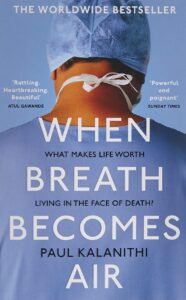 When Breath Becomes Air
When Breath Becomes Air
by Paul Kalanithi
Memoir is not what you think.
At first glance, memoir seems to be a window into the writer’s world. We, the readers, lean in, eager to glance at the mundane and magnificent happenings of famous figures and intriguing individuals.
But what if memoir is not just a window?
When the sun hits a window at just the right angle, the transparent pane transforms into a glassy reflection. It acts as a mirror through which we can see ourselves.
The magic of memoir comes when we see our own story through the story of another. Although our circumstances are different, our felt humanity is much the same. The writer’s triumphs arouse memories of our own mountaintops; the author’s anguish reminds us of our own pain. We travel alongside them, and in doing so, we gain a better sense of who we are.
Such is the case with Molly Stillman. In her newly released memoir, If I Don’t Laugh, I’ll Cry, Stillman details the heartbreaking story of losing her mother at age 17, and unexpectedly inheriting a quarter of a million dollars from her mother’s estranged family’s estate just a few years later. After quickly blowing through her inheritance, Molly faced overwhelming debt and hit rock bottom as she struggled with depression, isolation, and shame. It was along this messy, meandering path that Molly eventually found faith, hope, and healing.
“I remember for a long time I was like, well, my life doesn’t look like everybody else’s,” Stillman shared. “I took this weird path and none of it made sense. As I actually started to put the pieces together, I realized that it actually made more sense than I thought. All of us have these lives that are not linear. I began to realize how every piece of my own story was just a thread in this tapestry of my life, and I wanted to share my story to help other people see that their broken, messy, windy, weird story of a life actually also makes sense.”
It was a similar sentiment that motivated former conservative political ghostwriter Nancy French to share her story. In her new memoir, Ghosted: An American Story, French details her own journey, including her split from the GOP after refusing to endorse Donald Trump in the 2016 election. The fallout was hasty and severe. She found herself alienated from her church, politically homeless, and without a job.
In Ghosted, French shares vulnerably about growing up in Appalachia, enduring childhood abuse, marrying her husband David French, uncovering decades of abuse at Kanakuk Kamps, and navigating the ever-changing landscape of religious and political allegiance.
“As I approached 50,” French said, “I wanted to quit hiding behind other people’s stories and tell my own. I have been a ghostwriter for many years, and I finally have the opportunity to write my own book. I wrote this book for anyone who feels spiritually, culturally, or politically homeless, to reach my hand out to them through the pages of the book and say, ‘You are not alone, and this is a sacred place to be.’”
In the midst of writing her memoir, French’s life took an unexpected turn when she was diagnosed with cancer. “The book is about trusting God amongst all the vicissitudes of life, and I feel like this is just part of it,” French reflected. “My book launches on the 16th, and I have the Red Devil Chemo on the 17th, so I’ll be face-planted in a mattress by the time the book comes out.”
As Rick Warren said when his wife was diagnosed with cancer the same year his bestselling book, The Purpose-Driven Life, was released, “I used to think that life was hills and valleys — you go through a dark time, then you go to the mountaintop, back and forth. I don’t believe that anymore. I believe that it’s kind of like two rails on a railroad track, and at all times you have something good and something bad in your life.”
Heartbreak and healing. Setback and success. Spiritual doubt and renewal.
Life is not a straight path.
We may initially open a memoir to peek into the window of the writer’s life, but inevitably what we will find is a looking glass — a mirror prompting us to consider our own path, our shared human struggle, and our capacity for resiliency and redemption.
Memoir may be a window, or a mirror, but mostly, it’s a reminder that we are not alone.
